Brazil in 2026
- Finton Hanks
Canning House was delighted to host a Brazil Update roundtable with Michael Stott, Latin America Editor, Financial Times, on Monday 8th December.
Briefing
Learn More News
The Canning House UK-Brazil Conversa 2024 took place on 13 September in São Paulo, Brazil, bringing together over 40 speakers across three sessions, seven panels, and four keynote speeches. The event addressed pressing topics like climate change, trade, energy transition, and technological innovation, focusing on how the UK and Brazil can collaborate on these critical issues.
Reading time: 5 mins approx.
The Canning House UK-Brazil Conversa 2024 took place on 13 September in São Paulo at Fundação Getúlio Vargas' School of Business Administration (FGV-EAESP), bringing together over 40 speakers across three sessions, seven panels, and four keynote speeches. The event addressed pressing topics like climate change, trade, energy transition, and technological innovation, focusing on how the UK and Brazil can collaborate on these critical issues.
The day began with opening remarks by Jeremy Browne, CEO of Canning House, and Prof. Tales Andreassi, Vice Dean of FGV-EAESP. The first keynote speaker, Virgínia de Ângelis Oliveira de Paula, Brazil’s National Secretary of Planning, introduced Brazil's 2024-2027 Plurennial Plan, emphasising the importance of strategic planning and UK collaboration on climate change and the Sustainable Development Goals (SDGs). The Rt Hon. Ed Miliband MP, UK Secretary of State for Energy Security and Net Zero, delivered a video address praising Brazil’s leadership in clean energy and stressing the need for joint efforts on decarbonisation and deforestation. Dr Francisco Gaetani, Brazil's Extraordinary Secretary for State Transformation, called for deeper UK-Brazil cooperation in areas like finance, energy, and digital transformation.
The Rt Hon. Ed Miliband MP addresses the UK-Brazil Conversa
The first panel, Geopolitics & Global Governance: Shared Perspectives between Brazil & the UK, chaired by Dr. Irene Mia (IISS), featured Jeremy Browne (Canning House), Prof. Matias Spektor (FGV), Prof. Carlos Malamud (Real Instituto Elcano), and Marcos Caramuru (CEBRI). The panel explored the geopolitical landscape, focusing on the rise of China and its impact on UK-Brazil relations. While both countries see opportunities for cooperation on climate change and trade, there are significant differences, particularly regarding their respective stances on Russia’s invasion of Ukraine.
After a break, the Conversa split into three concurrent panels. Strategies and Key Priorities for Driving the Energy Transition in the UK and Brazil was chaired by Prof. Anthony Pereira (FIU) and featured Adriano Burger (bp), Marcelo Miterhof (BNDES), and Thomas Nemes (Anglo American), with Matheus Noronha (ABBEólica) as rapporteur. This panel discussed the approaches both nations are taking to achieve net-zero emissions and identified areas for collaboration, assessing past achievements and future trajectories.
In the second breakout panel, Technological Transformation – How Digital Developments and Access Are Changing Ways of Life, Courtnay Guimarães Jr. (Avanade) led a discussion with Denis Balaguer (EY), Jeremy Burdge (Eltemate), Nina da Hora (Instituto da Hora), Diego Sette (Pearson), and Daniel Stivelberg (Nubank). The panel examined the impact of digital innovation on everyday life in the UK and Brazil, highlighting both opportunities and risks, and identifying areas where lessons could be shared between the two nations.
The third panel, Societal Trends and Their Impact on Brazil and the UK, chaired by Dr. Débora Thomé (FGV), included Diego Pagura (Ipsos), Leonardo Queiroz Athias (IBGE), and Sophie Stowers (UK in a Changing Europe). This session analysed social trends such as crime, inequality, and unemployment, as well as generational differences and the decline of religion, examining how these issues are shaping both societies and exploring their root causes.
After lunch, the fourth keynote was delivered by Eduardo Leite, Governor of Rio Grande do Sul. He discussed his government’s “Plano Rio Grande,” a long-term recovery plan for the state following devastating floods earlier in 2024. Governor Leite stressed the importance of continuity in climate policies and the need for partnerships with federal, international, and private sectors to build resilience against future climate-related disasters.
In the afternoon, the Conversa split once again for three more panels. Climate Disasters: Risks, Preparedness, Prevention, Mitigation, Response, and Building Resilience was chaired by Morgan Doyle (IDB), with Eduardo Bastos (GPS), Christian Perlingiere (Control Risks), Ana Carolina Salomão Queiroz (Pogust Goodhead), and Rômulo Sampaio (Mattos Filho) on the panel, and Constance Malleret as Rapporteur. The discussion focused on how both countries are preparing for and responding to the increasing frequency of climate-related natural disasters, particularly the impact on vulnerable communities.
The next panel, Deepening Economic Ties: Collaboration between the UK and Brazil in Emerging Industries and the Future Knowledge Economy, was chaired by Jonathan Knott CMG (DBT) and included Carla Ferreira (Brazilian Chamber of Commerce in GB), Martin Whalley (British Consulate São Paulo), and Marcio Zanetti (Britcham Brasil), with Natália Dias as rapporteur. The panel discussed opportunities for strengthening economic ties in sectors like EduTech, FinTech, agribusiness, and artificial intelligence, focusing on strategies for increasing bilateral trade and collaboration.
Last but not least, Innovation & Sustainability in the Health, Life Sciences, and Pharma Sectors: Areas of Collaboration for the UK and Brazil, was led by Henrique Frizzo (Trench Rossi Watanabe) and featured Olavo Corrêa (AstraZeneca), Prof. Sue Ann Costa Clemens CBE (University of Oxford), and Dr. Elize Massard da Fonseca (FGV-EAESP), with Dr. Maria Alejandra Costa (FGV) as rapporteur. This session explored opportunities for joint research, sustainable collaboration, and trade in health innovation, life sciences, and pharmaceuticals.
The event concluded with a plenary session where the rapporteurs summarised the insights from each panel, followed by closing remarks from Dr. Elize Massard de Fonseca and Jeremy Browne. A networking reception, sponsored by Diageo, brought the event to a close.
Canning House thanks FGV-EAESP and Anglo American for their partnership on the UK-Brazil Conversa 2024; Diageo, Britcham Brazil and the Brazilian Chamber of Commerce in GB for their support; our keynote speakers and participants for their insights; and our attendees for their engagement and interest.
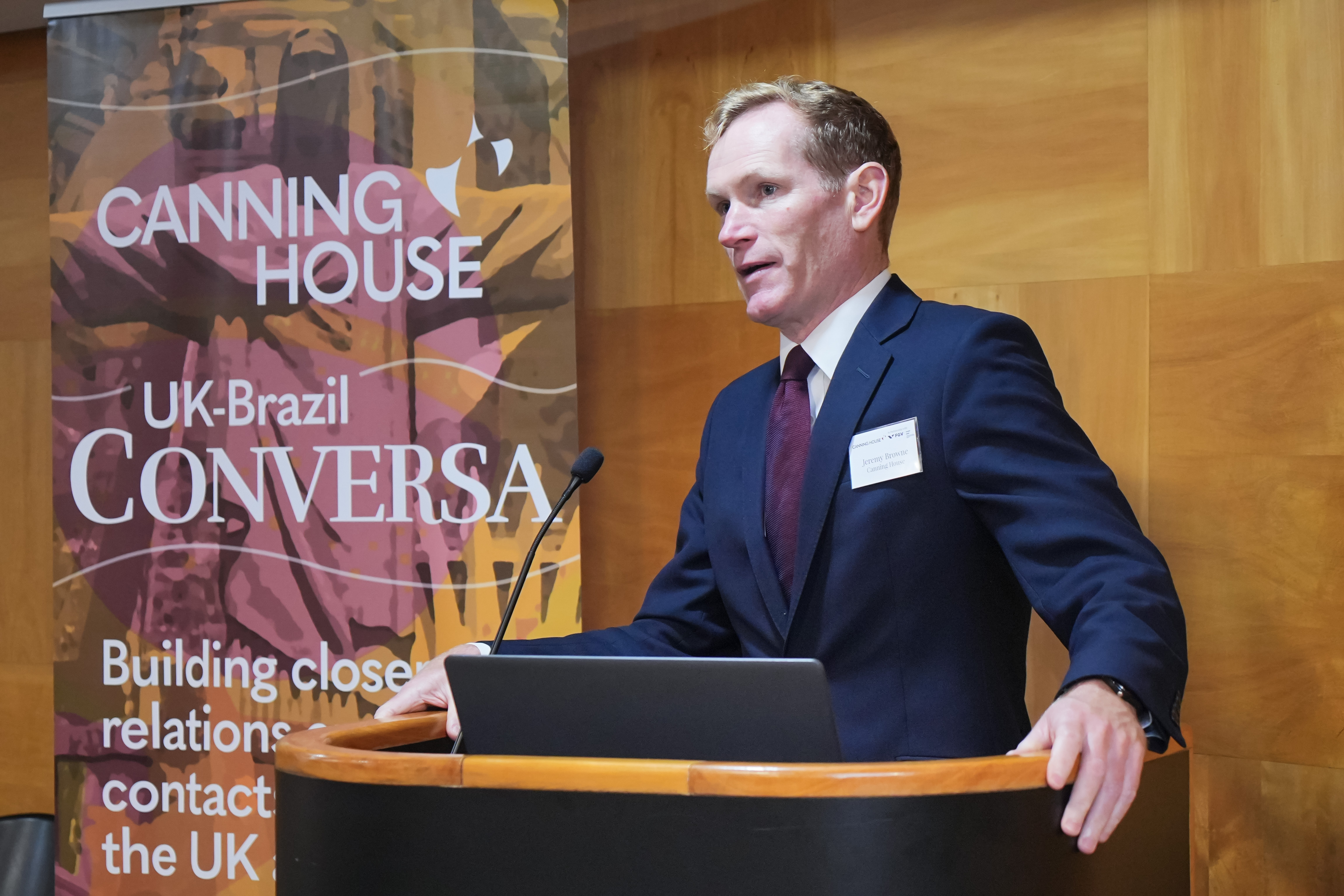
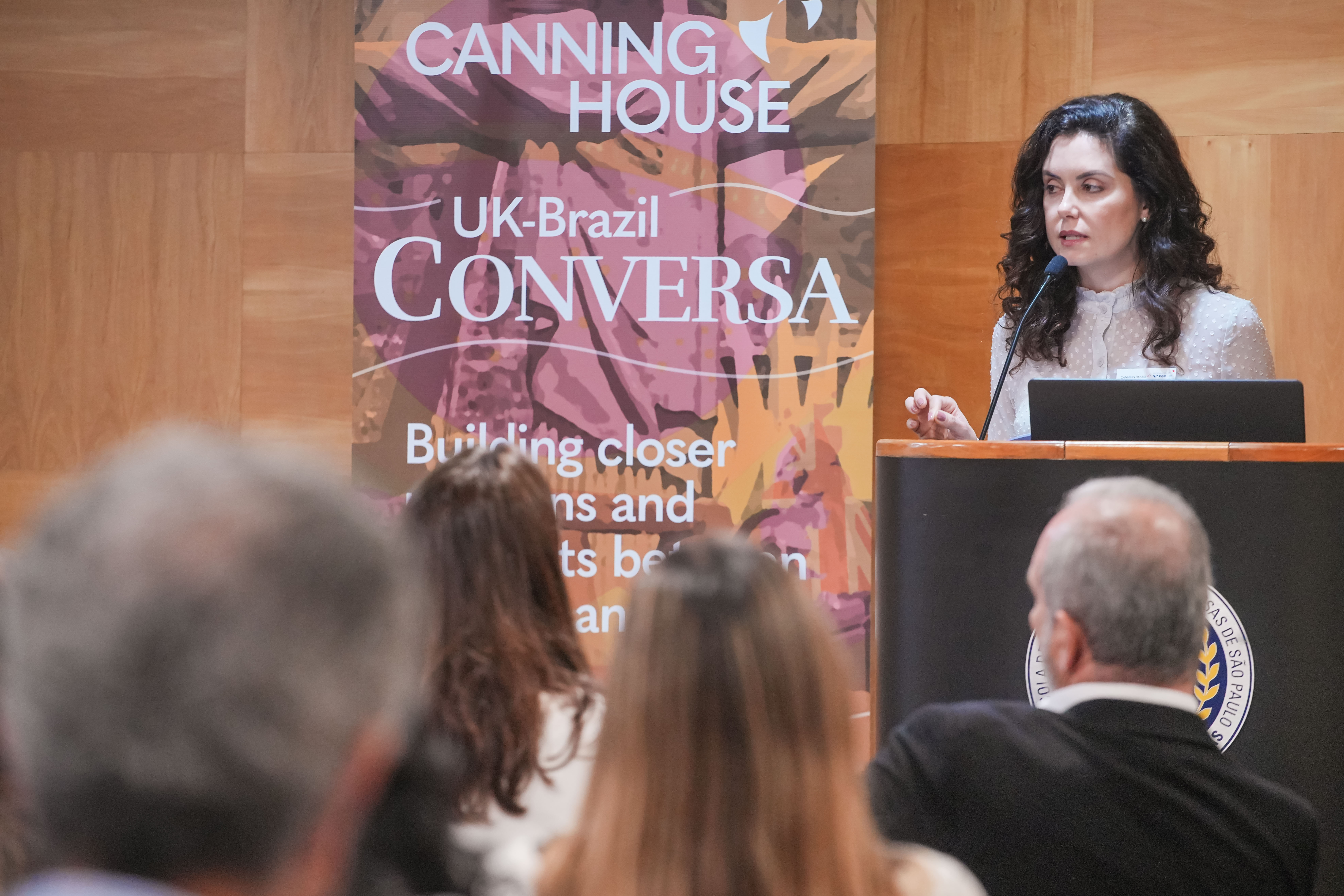
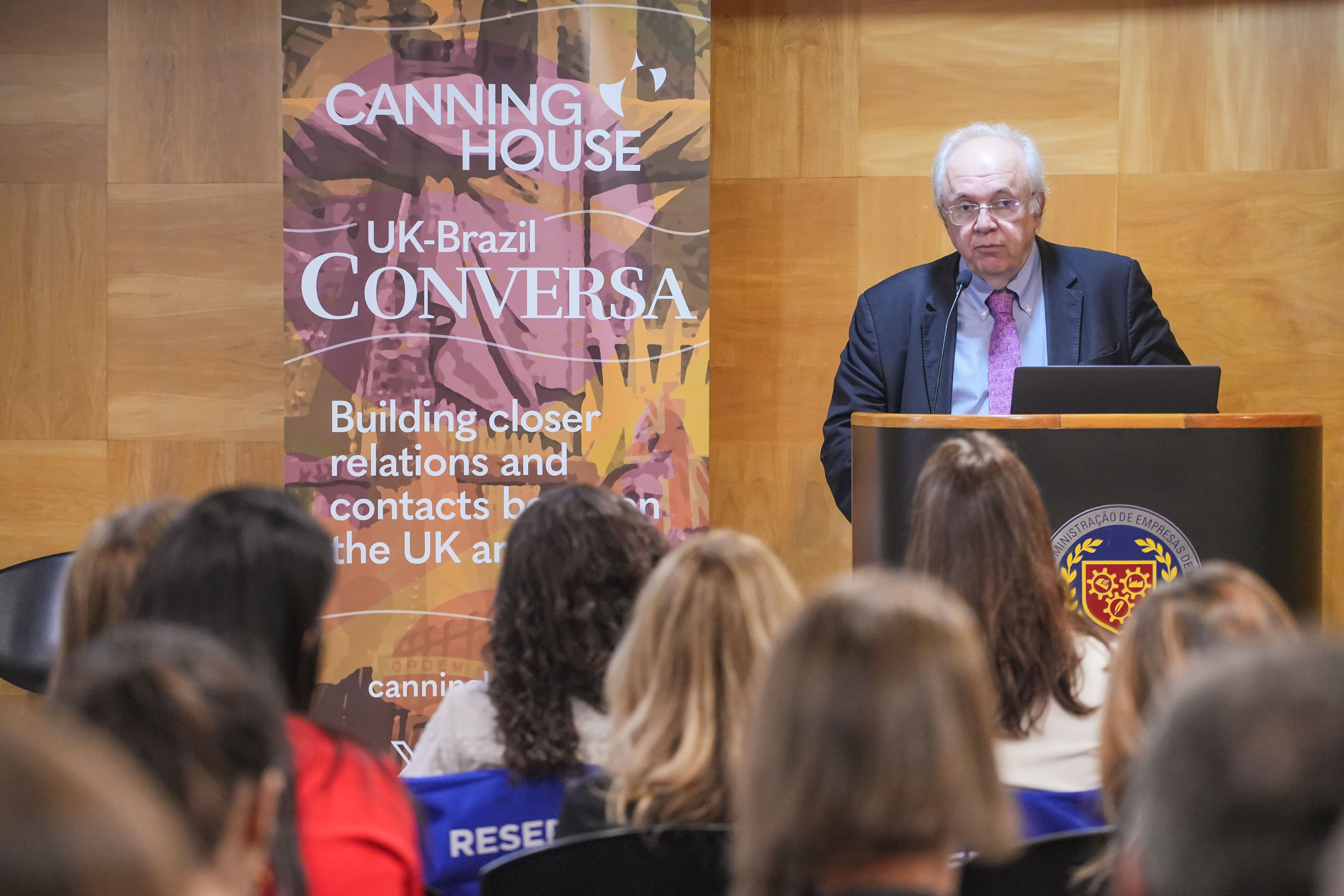
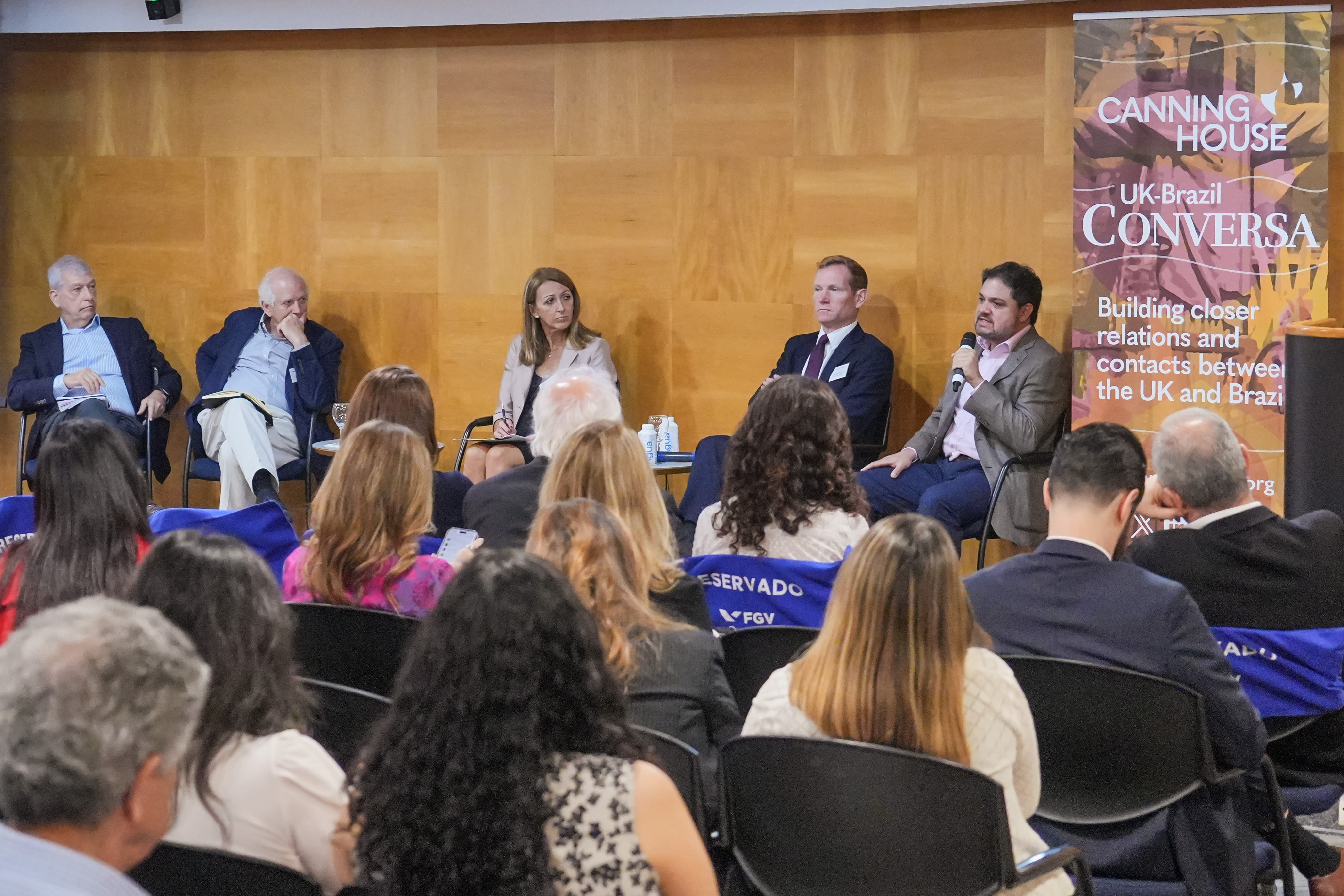
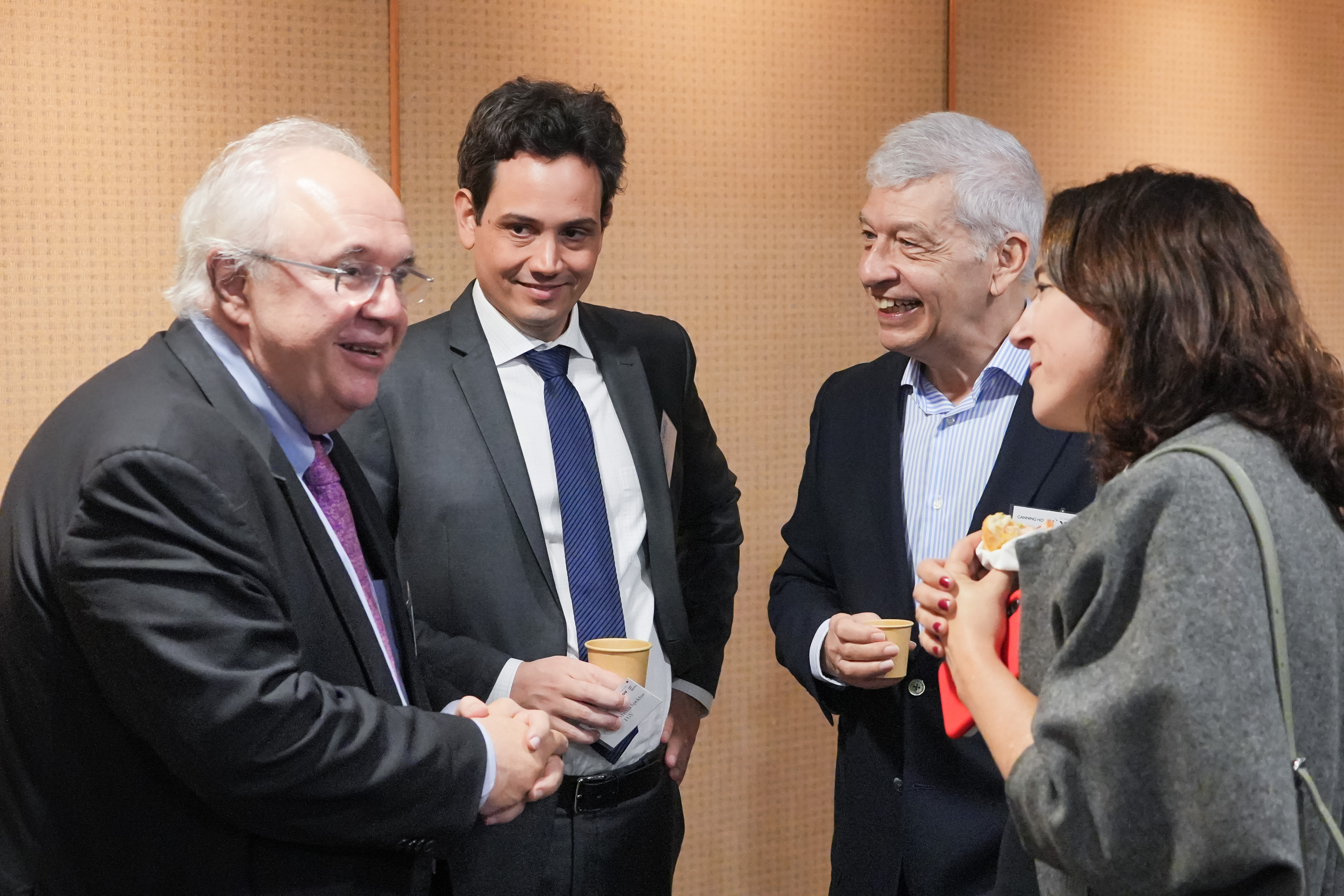
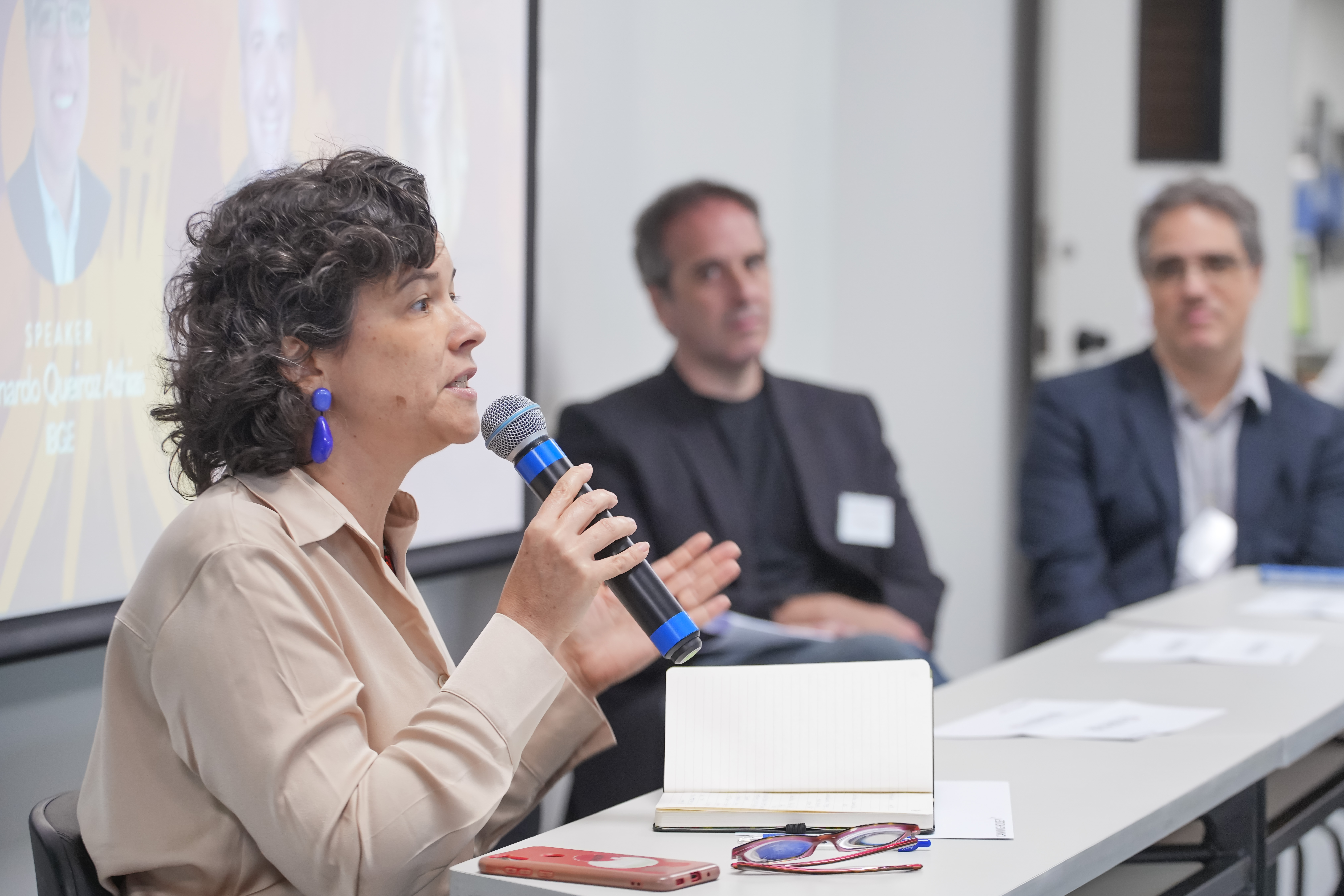
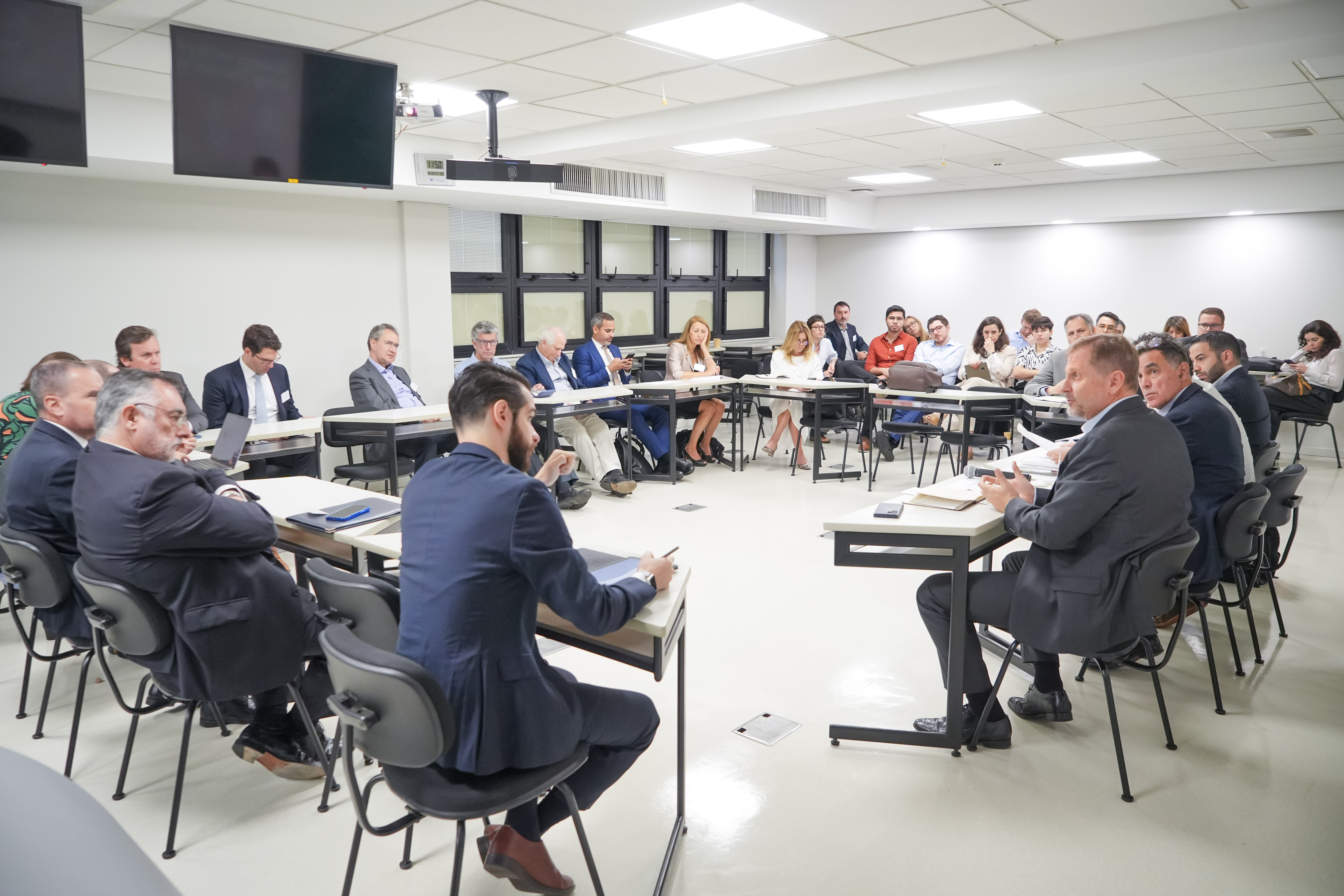
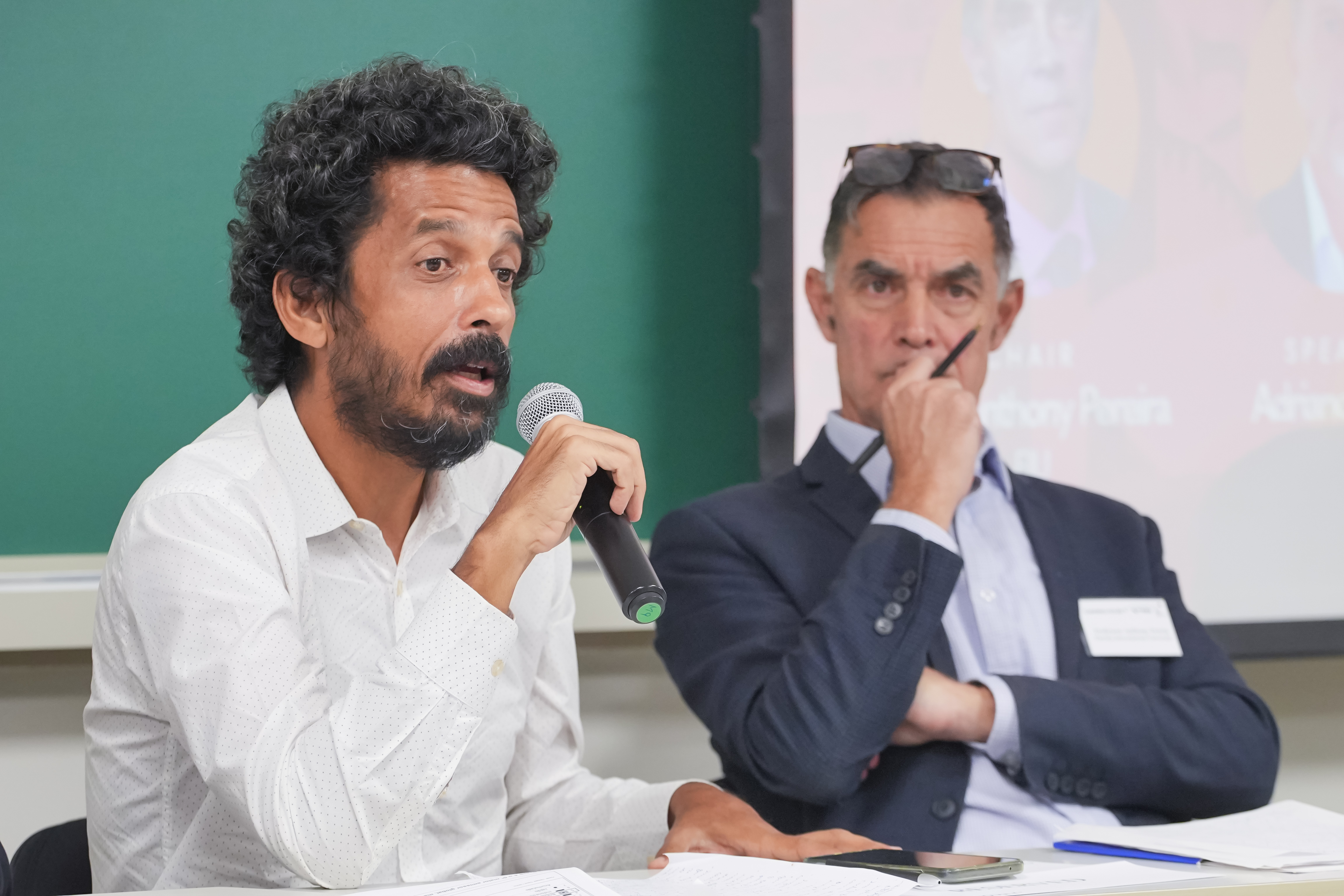

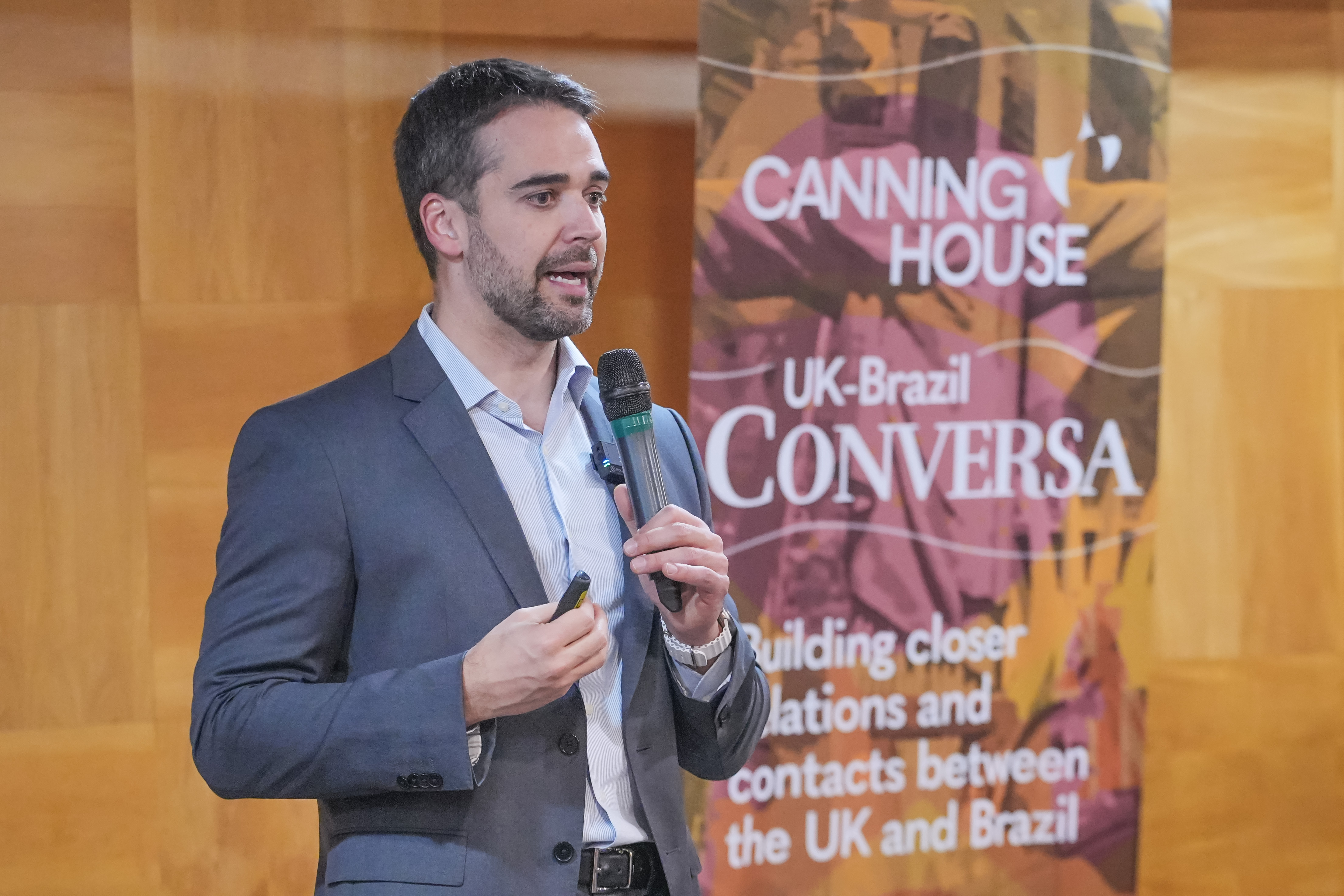
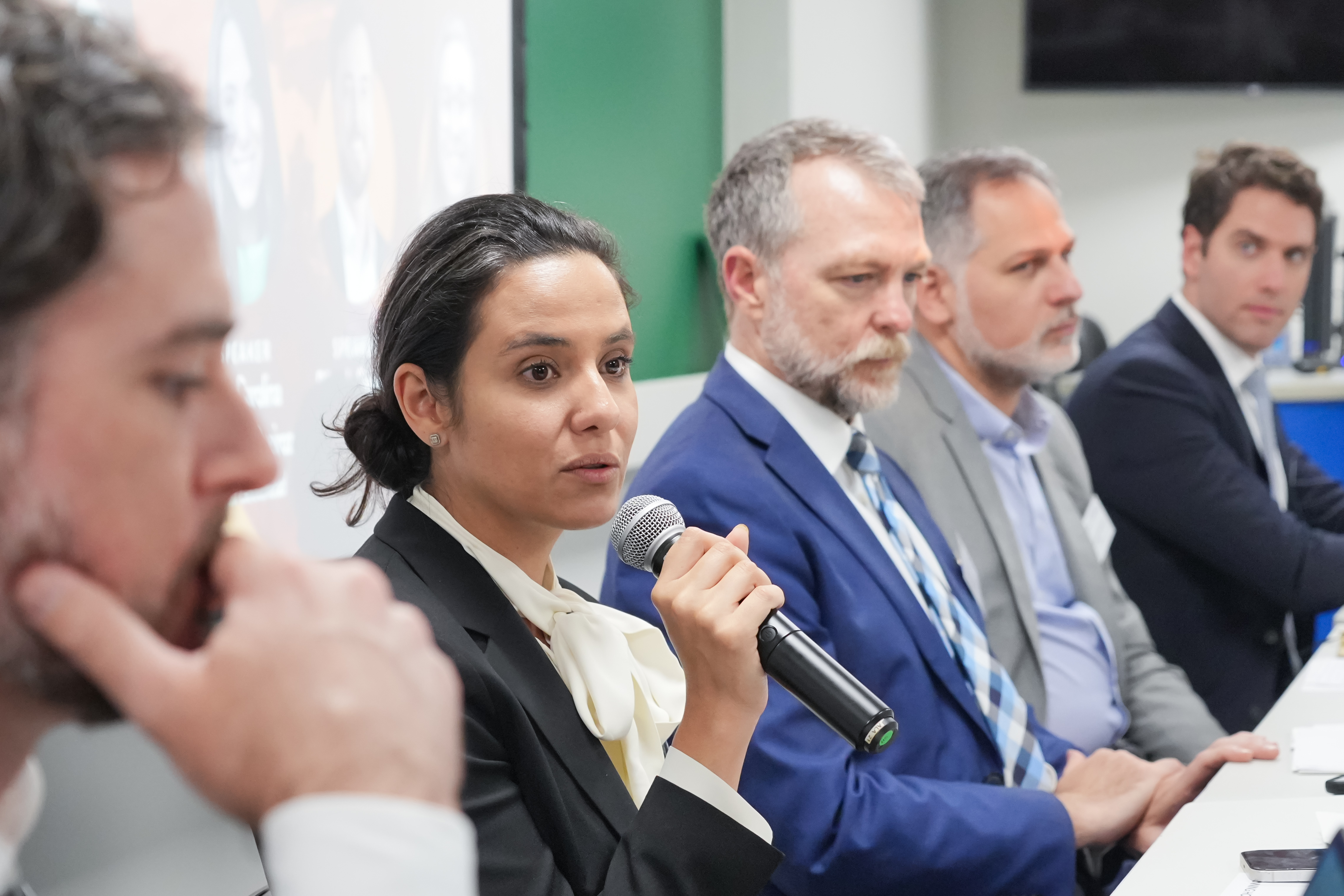
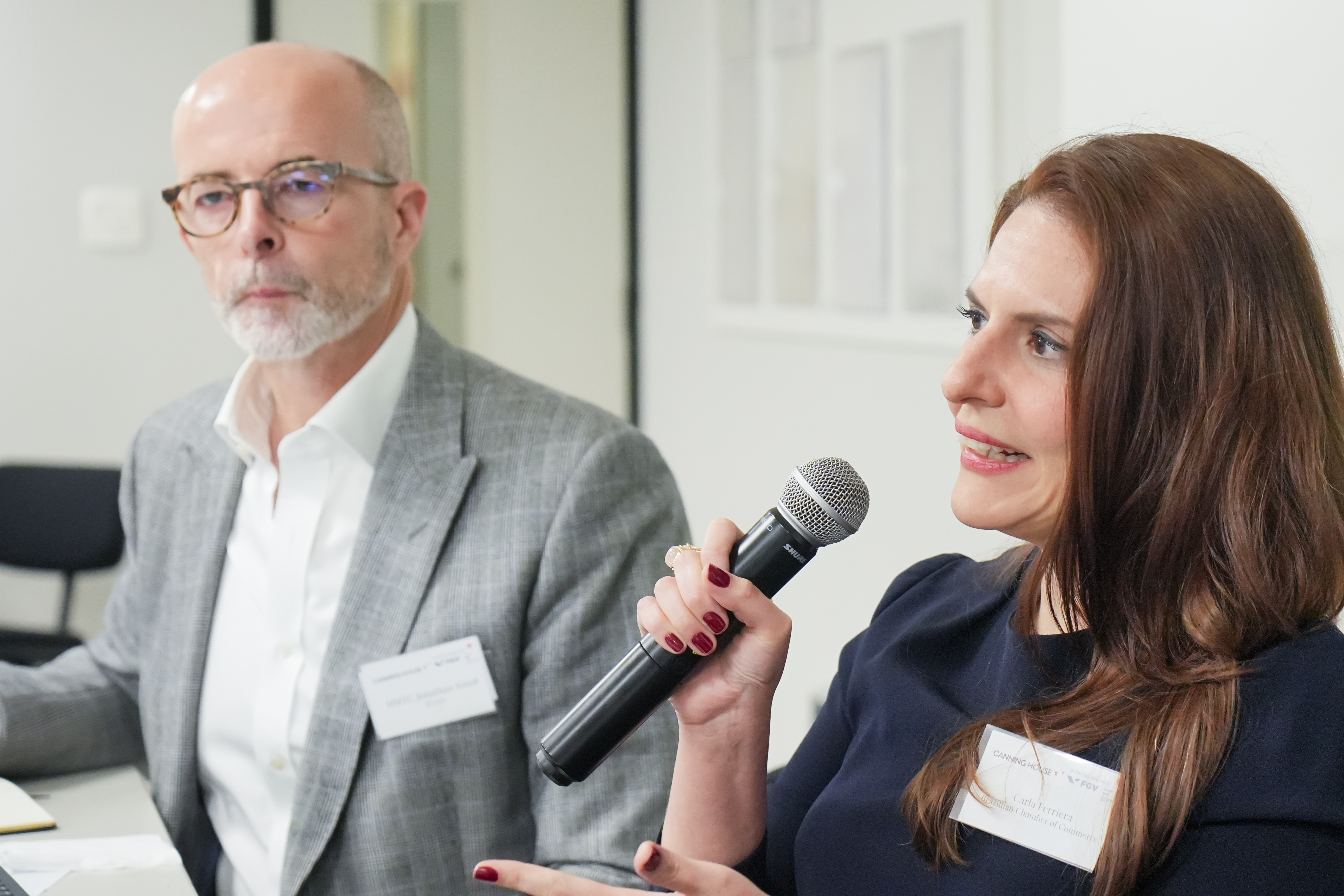
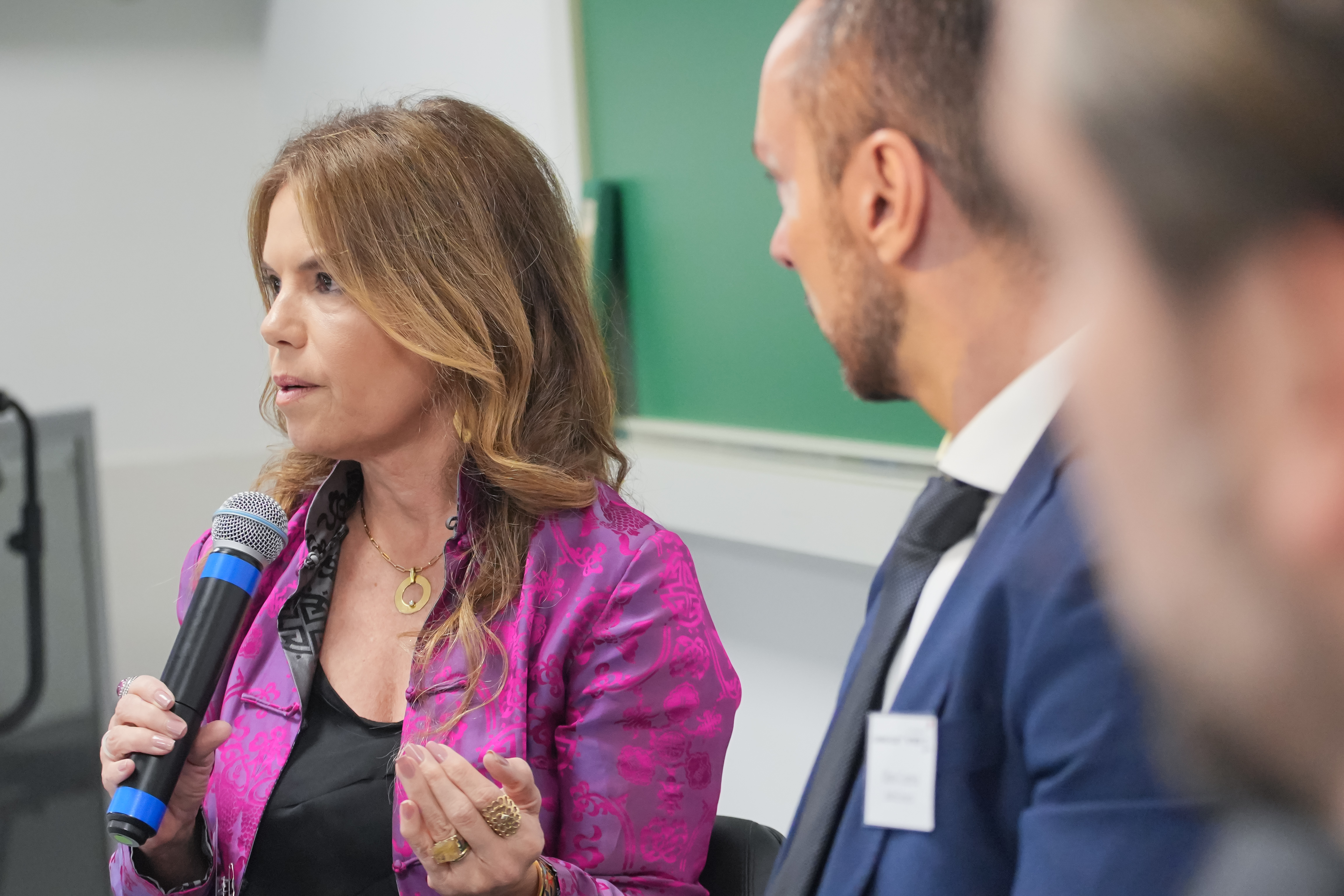
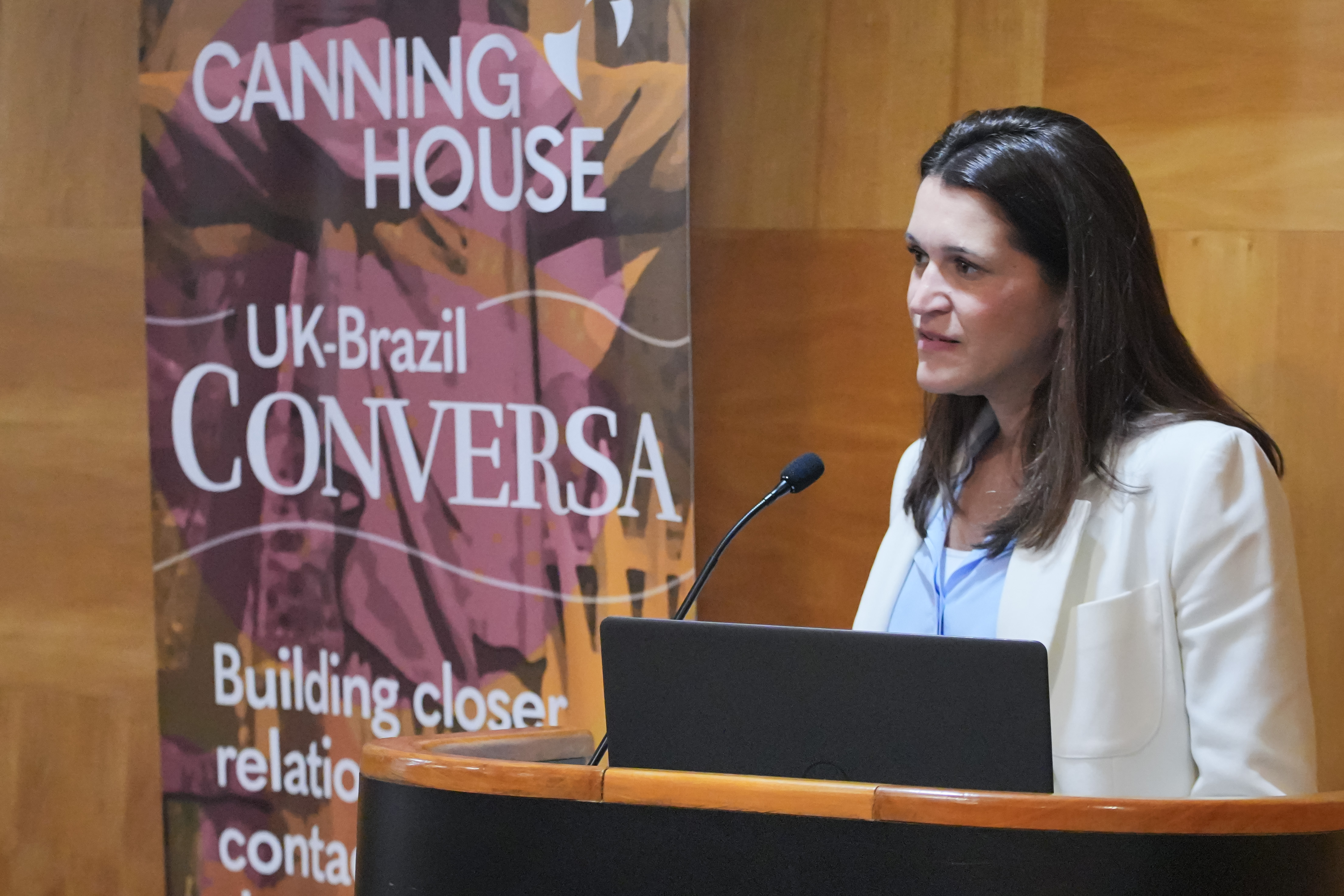
By joining Canning House, you will become part of the UK's leading forum for informed comment, contacts and debate on Latin American politics, economics and business.
Just £50 per year.
All of Canning House's activities, including our upcoming events, insightful publications, latest news, and featured events from the UK-Latin America community.
In your inbox, every week, for free.